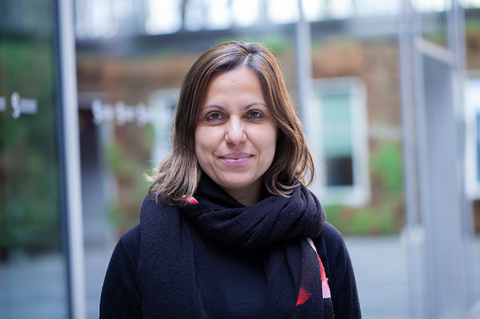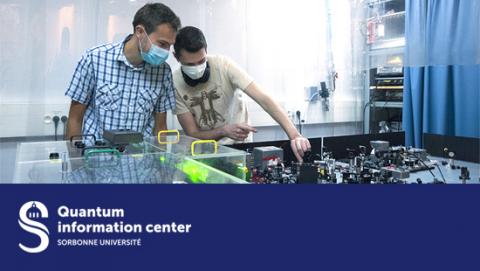
From Lab to Startup: Eleni Diamanti on Quantum Technologies and Commercialization
Eleni Diamanti is one of the founders of Welinq, a Paris-based startup set to bring pivotal hardware to quantum computing and communication infrastructures. On the back of a successful pre-seed funding round, the CNRS research director sat down with us to talk about the motivations, ambitions and challenges that meet at the intersection of research and business.
Congratulations on a successful first round of funding. What does it mean for the short-term development of Welinq? What actions will it facilitate?
Thank you! This funding will allow Welinq to accelerate its growth. The enlarged team will work towards the development of the first product and begin preparing the next steps of the roadmap.
What is a quantum memory, and what does it mean for it to be commercialized?
A quantum memory is a device that can store on demand information encoded in properties of quantum states of light, which can then be retrieved for use in a communication or computation task. This function is central to the interconnection and synchronisation of quantum processors. Its industrial development and commercialization is a key element enabling both a modular architecture for quantum processors and a remote access to their capabilities for network users.
What motivated you to take this technology from a lab to a startup?
Performing research in an academic lab is an extremely fulfilling venture leading to wonderful scientific discoveries, like those that led to record high quantum memory performance at LKB1 and multiple demonstrations of quantum advantage for communication and computation tasks at LIP62. In a lab, however, such scientific discoveries often stop at the proof-of-principle stage, where the relevant trade-offs are identified and discussed but not resolved. A startup, with its dedicated technological roadmap pursued by highly qualified collaborators and supported by significant funding, can overcome this stage, pushing the engineering and development to a degree that is incompatible with academic research. Witnessing the advancement of the technology through these stages is very stimulating and can actually have a very positive impact on our research labs.
The groundbreaking technologies developed by Welinq are the result of your work at LIP6, as well as the work of your colleagues over at LKB. How important is collaboration in your field of work?
Collaborative work performed at the interface between the various disciplines involved in quantum technologies (theoretical and experimental physics, computer science, engineering, materials, etc.) is in my view the only way to make real progress in the field, in particular in view of technology commercialization. I have always pursued my research with strong collaborations and I believe it is one of the most fulfilling aspects of our work.
What is your overall ambition for Welinq?
I would like Welinq to become the champion of quantum interconnects for processors and networked devices. I would like it to be an innovative and responsible company, bringing real added value to quantum information processing and communication while also being exemplary and a home to its collaborators.
Alongside Welinq, what excites you most about your current research?
I am always excited about new projects and we are currently working on many in our team, including for example using photonic integration for quantum cryptographic and computing tasks, the demonstration of advanced networking protocols based on multiparty entanglement, and the deployment of a quantum communication testbed in France with both terrestrial and satellite links, allowing for field tests of our developed technologies. There are many challenges associated with these objectives, which makes our days very rich!
In the lead up to International Women’s Day, have you seen a change in the number or representation of women working in your field? Is there a new generation of young women stepping into the domain?
I have observed that the number of junior female colleagues fluctuates quite a bit; I hope that on average it will keep growing. I am very proud to have accompanied in some capacity several young women in the field, and I hope that they will stay! Senior female colleagues are more present in some countries and in some subfields of quantum technologies than in others. In France, we have a rather balanced environment that I appreciate very much. Representation is constantly improving and I am quite optimistic that by raising more and more awareness and debating related issues it will only get better, though it is important to stay alert and keep up our efforts.
1 The Laboratoire Kastler Brossel (LKB), a leading actor in fundamental physics of quantum systems, with a history of 3 Nobel Prizes and 5 CNRS Gold Medals.
2 The Laboratoire d’Informatique de Sorbonne Université (LIP6), a synergetic, multidisciplinary research center and France’s largest laboratory in computer science.



